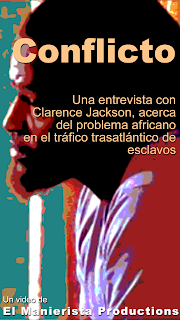To
begin with, it is impossible to have an anti-culturalism that does not
participate in the culturalism that is criticized, as it’s determination; the
praise of Jean Paul Sartre, the target who rationalizes Senghor's poetics,
subordinates it to him, is enough for suspicion. As with Senghor, Sartre seizes
Fanon in the prologue to The Wretched of the Earth, imposing his
exegesis; which responds to that false universalism of political determination,
to which he reduces Marxism even from its economism.
In
fact, Fanon's critique of Senghor —about the idealization of the African past—
is erroneous and uncomprehending; for although Irrationalist is not romantic,
and even romanticism is not historicist but referential in its reflexivity.
This type of reduction is recurrent, precisely because of this misunderstanding
of that object, in its extrapositivity; clarifying their incapacity, both to
understand the real, and to provide a viable solution to their contradictions.
Hence
his poetic enthusiasm for the second verse of The Internationale, which still
moves even its victims; even more so to his revolutionary and practical
sensibility, not an intellectual one, exhausted in that pure existence. The
mistake is in giving intellectual connotation to the groan of the slave who
cannot maroon, believing in the contra mayoral; that Sartre of a ladino Marxism
—not theoretical but political— as a monk who weaves theological subtleties
about Marian virginity.
Fanon's
books are thus only manuals of revolutionary theology, their reference is
morality and not intelligence; and Negritude can do nothing in the face of
this, because it is not a reality but a necessity, supposed as formal.
Negritude, on the other hand, is another extension, not necessary but possible
in its own formality, which is therefore not constrictive; instead of rational
dogmatism, it responds to irrationalist probabilism, not to the psyche but to
poetry, as poetic.
Fanon
nevertheless has a capital value, enhancing the hermeneutical density, still
necessary, by contradicting it; a function that becomes more amiable in that
anti-culturalist pseudo-culturalism of his, instead of the political aridity of
Depestre. After all, Fanon does not speak to the wretched of the earth but to
himself, as yet another among them, hopeful; while Depestre participates in
that elitism of the Haitian mestizo bourgeoisie, without the level of praxis
that Fanon exhibits.

.jpg)






.jpg)



























